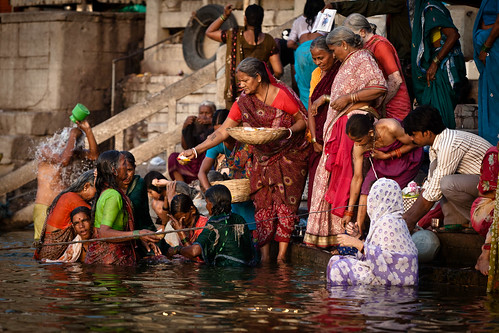Lean, Green Driving Machines

Glitzy, sporty, fast, small, and above all green. That’s the theme at this year’s Frankfurt Auto Show that’s taking place this week. It’s one of the biggest and most important auto shows in the world, and it’s the place where carmakers premiere their latest and best models….and that’s just what they’ve done. Major automakers like Daimler, Ford, VW, Renault, and BMW are all trying to one-up each other to see who has the coolest and best eco-friendly car out there.
Audi, for example, showed off it’s new Urban Concept – in the picture you see above. It’s a futuristic example of what Audi calls the perfect car for congested city living. It’s extremely light-weight, completely electric and looks, well, cool.
VW showed off a car that looked very very similar in this picture below…

It’s called the “Nils” and is also electric, lightweight and a car of the future. VW unveiled another electric car that’s actually intended to hit the roads in the very near future: the Up.

The Up is set to hit production (and roads in Europe) by next year, and in Germany it would cost around 9,000 Euros.
And of course BMW was in on the competition too. The carmaker showed off the first roadsters in its “i” sub-brand series, the i3 and i8. The picture you see here is the i8, an electric sports car that’s been getting a lot of attention for its stylish, sporty look and it’s eco-friendly technology.
And that’s just scratching the surface! The Frankfurt Auto Show truly has some of the best and most innovative green technology ever in the auto industry – and those cars of the future might be drawing ever closer to the present…
Recycling diapers
 Disposable diapers may be a blessing for new parents. But they’re an environmental nightmare. They end up in landfills by the millions and the plastics in them can take hundreds of years to decompose.
Disposable diapers may be a blessing for new parents. But they’re an environmental nightmare. They end up in landfills by the millions and the plastics in them can take hundreds of years to decompose.
To combat the problem, the UK’s first diaper recycling plant has opened in West Bromich in the Midlands. It will work with local operators who collect waste from hospitals, nursing homes and child care facilities. Operated by Canadian company Knowaste, the facility is to use technology to sterilize and separate the materials to recover plastic and fiber that can be used for making new products such as roof tiles and commercial tubes.
The company estimates that the plant, which will also recycle female hygiene products, will save about 110,000 tons of greenhouse gas emissions a year. It plans to open a further four facilities in the coming years.
What do you think? Could something like this help to reduce the planet’s plastic footprint?
Cleaning up the Ganges
The holiest of India’s rivers, the Ganges, is also among the world’s dirtiest. The 2,500-kilometer (1,500-mile) Ganges in India is choking under industrial effluents, farm pesticides and other untreated sewage. Several attempts to clean up the river have failed in the past.
Now, the Britain-based Thames River Restoration Trust is starting a new initiative. It plans to work with communities living along the river to restore ponds to treat waste water. Villagers will be helped to adopt eco-friendly agriculture and encouraged to save some of the world’s rarest freshwater wildlife such as the Ganges river turtle, the Ganges river dolphin and the critically-endangered Gharial crocodile.
As part of the project, scientists from India will visit Britain to learn how the trust helped restore the River Thames, from almost biologically dead in the 1950s to one of the cleanest urban rivers in the world.
Crisis Solution?

Greece has been struggling to get out from under its heavy debt crisis for more than a year now, and the government is looking for any opportunity to slash debt and increase revenues. Their new plan? Solar power. The government wants Greece to become Europe’s leading solar power producer.
Renewable energy could be one field where Greece could have a big advantage, especially with the generous amounts of sun the country gets. The government’s new plan, called “Project Helios,” would see Greece’s solar power production multiply from 206 megawatts in 2010 to 2.2 gigawatts by 2020. Right now, Germany is Europe’s leader in photovoltaics, but Greece’s energy minister says his country actually gets 50% more sun. And he also said that if the plan is successful, Greece could help the rest of Europe meet its renewable energy targets by 2020.
So clean energy might be a way to fight debt crises across Europe and elsewhere…
Secret River

The Amazon is the second longest river in the world, snaking through large parts of South America. But just last week, scientists announced they’ve found another river that’s just as long but much wider – and it’s actually underneath the Amazon.
Researchers from Brazil’s National Observatory say the river, called Rio Hamza, is about 4 kilometers below the Amazon, underground. It ranges between 200 and 400 kilometers in width, while the Amazon is only between 1 and 100 kilometers wide. Rio Hamza starts in the Acre region under the Andes and flows through several of the Amazon’s basins before it empties out into the Atlantic Ocean.
Great find!









Feedback